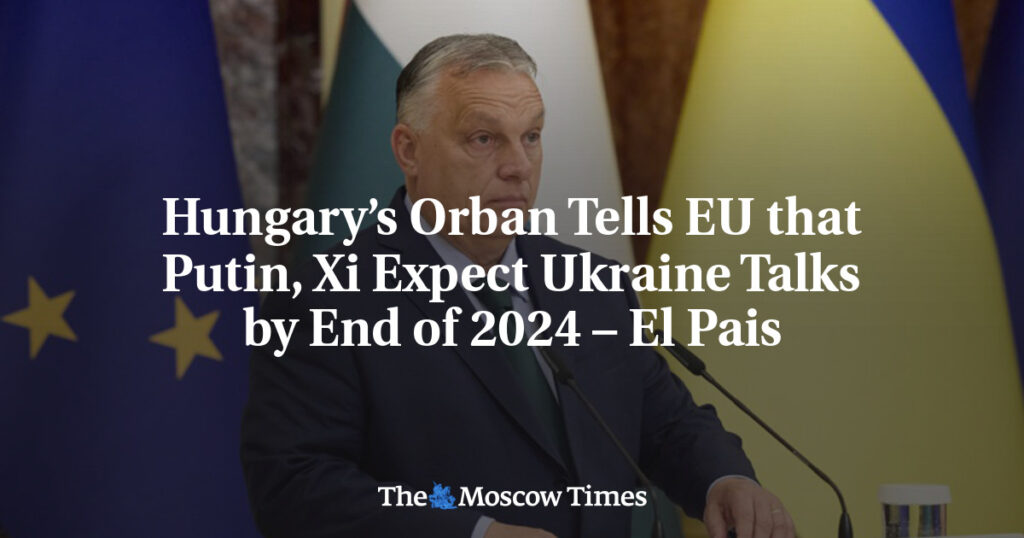Hungarian PM Urges EU to Push for Ukrainian Peace Talks by Late 2024
In a confidential letter obtained by Spanish daily El Pais, Hungarian Prime Minister Viktor Orban has urged the European Union to anticipate peace talks between Russia and Ukraine by the end of 2024. Orban’s communications follow his recent visits to Russia and China and signal a significant diplomatic move that has garnered both concern and criticism from Western allies.
Viktor Orban, one of President Vladimir Putin’s closest allies within the EU, assumed the rotating six-month EU presidency on July 1. This new role has given the Hungarian leader a platform to promote what he describes as a "peace mission" to resolve the ongoing conflict in Ukraine. However, his actions and comments have sparked the ire of both the EU and the United States.
Citing Orban’s confidential reports, El Pais revealed that Russian President Vladimir Putin and Chinese President Xi Jinping expect new peace talks with Ukraine before the year’s end. This anticipation is underscored by Putin’s reported surprise at Ukrainian President Volodymyr Zelensky’s rejection of his ceasefire proposal. Putin allegedly assessed Ukraine’s battlefield losses at a staggering 40,000 to 50,000 per month, although he did not specify Russia’s losses.
Russian Deputy Foreign Minister Andrei Rudenko remarked on the report, stating that peace talks would occur when Ukraine is ready and adopts what he termed a "more realistic stance."
The backdrop to these developments is significant. Last month, Putin stated that Russia would only halt its offensive if Ukraine withdrew its troops from the eastern and southern regions and abandoned its bid for NATO membership. Kyiv immediately dismissed this as a territorial "ultimatum" reminiscent of Adolf Hitler’s demands.
In his letter to European Council President Charles Michel, also seen by AFP, Orban relayed that Putin expressed openness to “any ceasefire proposal that does not serve the hidden relocation and reorganization of Ukrainian forces." Putin also mentioned the Istanbul peace talks in spring 2022 as a potentially relevant foundation for upcoming negotiations.
Orban’s discussion with Xi Jinping touched on the context of the upcoming U.S. presidential election. Orban, a known admirer of Republican candidate Donald Trump, who operates under the slogan “Make Europe Great Again,” suggested that a newly elected U.S. president might push for a rapid political resolution in Ukraine. He hinted that a ceasefire leading to quick and intense peace talks might interest the next U.S. administration. Xi, however, did not comment on this potential scenario.
These diplomatic maneuvers by Orban come at a delicate time for the European Union and its transatlantic partners. The EU has been steadfast in its support for Ukraine, while Hungary’s closer ties with Russia and China present a challenging dynamic.
The unfolding scenario lays bare the complex interplay between global powers and the high-stakes diplomacy required to navigate the Ukrainian crisis. As Orban continues his self-styled peace mission, the international community will watch closely, weighing the implications for regional stability and global politics.
For more information on Hungary’s diplomatic activities, visit the official website of the Hungarian Government.
